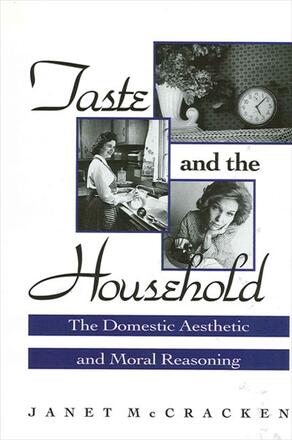
Taste and the Household
The Domestic Aesthetic and Moral Reasoning
Alternative formats available from:
Shows how lousy food, cheesy clothes, and dingy homes can ruin our lives.
Description
By exploring the connections between aesthetic sensitivity and moral character, this book connects them both to the larger cultural malaise. It locates the relationship between human nature and moral reasoning in what the author calls "domestic aesthetic skill," bringing together moral and aesthetic judgment about little things that are close to home—food, clothing, and furniture. McCracken combines the study of modern moral theory with the study of modern economics, contemporary popular culture, advertising, and design, to help understand how heady theories become translated into everyday actions.
Janet McCracken is Associate Professor of Philosophy at Lake Forest College. She is the author of Thinking About Gender: A Historical Anthology.
Reviews
"I like the author's insightful analyses of the moral importance and moral implications of everyday domestic choices. I especially like McCracken's criticism of the 'phenomenological distancing' and 'techniques of vagueness' of contemporary culture and her relating her ideas to points in Plato and Aristotle. She takes a fresh and interesting approach to the problem of moral choice, showing the relevance of ordinary domestic matters to grand, traditional, ethical topics like virtue, skill, and happiness. " — Donald C. Abel, editor of Fifty Readings in Philosophy